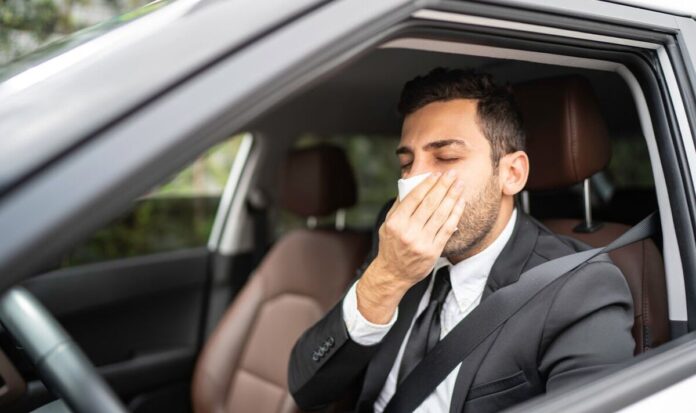Motorists could lose their licences this autumn if they fail to report certain medical conditions to the DVLA, according to experts at Quotezone. In its new research the experts stressed there are 10 conditions that could prevent drivers from legally taking to the road or invalidate their insurance – leaving them unprotected in the case of an accident.The penalties for not declaring a medical condition can include a £1,000 fine and the risk of prosecution if the driver is involved in an accident.Yet some motorists may be unsure of what exactly precludes them from driving.Greg Wilson, founder of car insurance comparison site Quotezone.co.uk says: ‘ A serious medical diagnosis on top of the fear of losing transportation and independence can be devastating.”However, many conditions and medications won’t impair driving, which the DVLA and insurance providers recognise – but they do need to be kept up to date with any changes.READ MORE: Motorists could face fines for simply defrosting their car windscreens Drivers could lose their licences for not declaring certain medical conditions. (Image: Getty)’Taking all precautions to be safe on the road is extremely important and drivers must play their part to ensure their wellbeing and the wellbeing of other road users is protected to the best of their knowledge.’The DVLA has an extensive list of over 110 conditions that can affect driving, so some motorists may be unaware of all of these conditions or the extent to which they can affect driving ability.’We found some quite surprising and lesser-known conditions, some of which carry an increased risk and therefore insurance premiums can be higher – or more seriously, some ailments can even result in the driver’s licence being revoked.”If drivers have been diagnosed with any of these conditions they need to inform both the DVLA and their insurance provider, since having inaccurate details on the insurance policy can void the insurance and leave drivers unprotected.’DON’T MISS Petrol and diesel cars should be ‘upcycled’ instead of scrapped [INSIGHT] Car tax changes and grants key to support electric car uptake [REVEAL] UK drivers warned of ‘nasty surprise’ when buying fuel at supermarkets [WARNING] The penalties for not declaring a medical condition can include a £1,000 fine. (Image: Getty) The UK’s most dangerous regions to drive in. (Image: EXPRESS)Most eye conditions, such as Glaucoma, must be reported to the DVLA, and it is up to their discretion what procedure they will carry out regarding the driver’s licence.StrokeAfter having a stroke it is possible that drivers may be able to drive again in the future, but initially, they must stop driving for one month after having a stroke.If they have returned back to normal health after a month, they can start driving again. However, the DVLA needs to be informed if health problems still persist for longer than a month after the stroke.Seizures and epilepsyIf drivers have had a seizure whilst awake and lost consciousness, their licence will be taken away.They can reapply if they go six months without a seizure and medical advisors have given their input.If a seizure happened in other instances, such as while they were asleep, they may be able to retain their licence depending on DVLA and Government guidelines.VertigoRecurrent or sudden dizziness must be reported to the DVLA.SyncopeSyncope is a condition that causes a temporary loss of consciousness. Fainting conditions including syncope, which causes blackouts, must be reported to the DVLA.Certain operationsOperations on certain body parts, including the legs, can exempt people from driving.However, this can be up to the discretion of the doctor, who should inform the driver about driving procedures after leaving the hospital.Driving on medicationsIf drivers are on strong medications, it is likely that they will be recommended to avoid driving.Opioid painkillers, tranquillisers, and certain antidepressants are examples of medicines that can affect driving ability – as well as those that cause drowsiness or say “do not operate heavy machinery”.
Drivers could lose their licences for not reporting medical conditions
Sourceexpress.co.uk
RELATED ARTICLES


